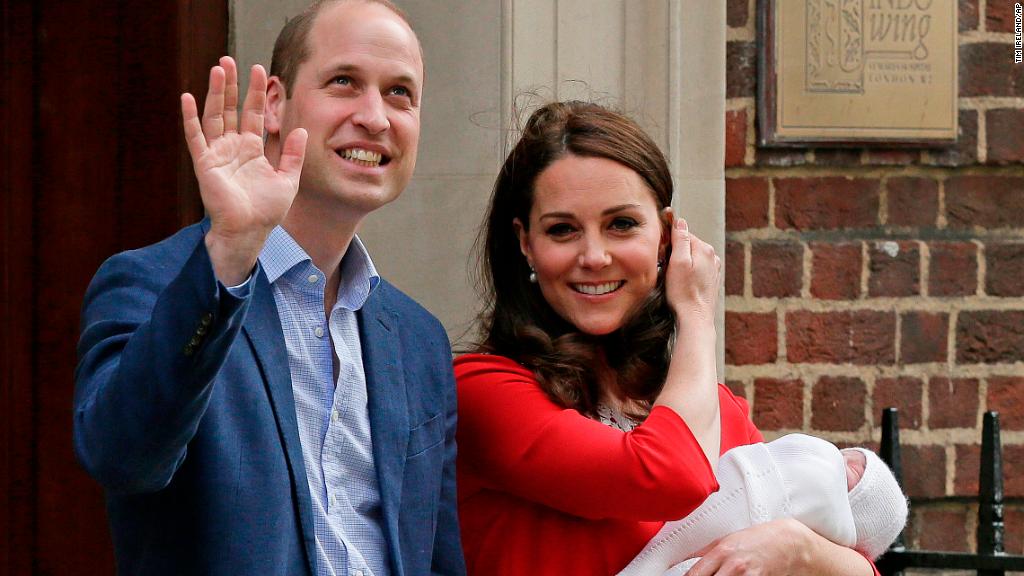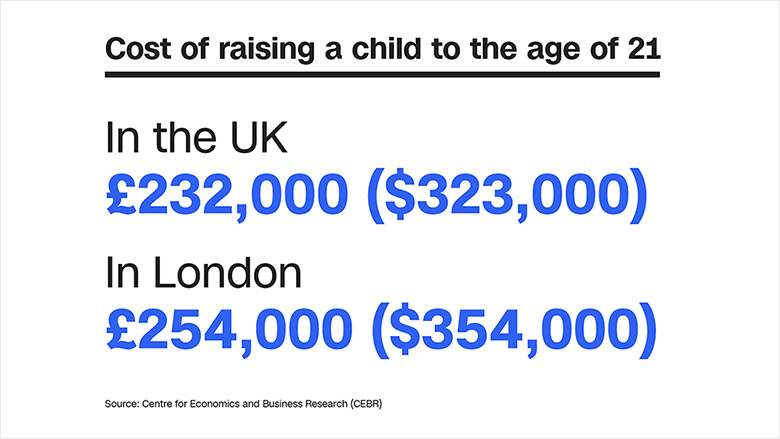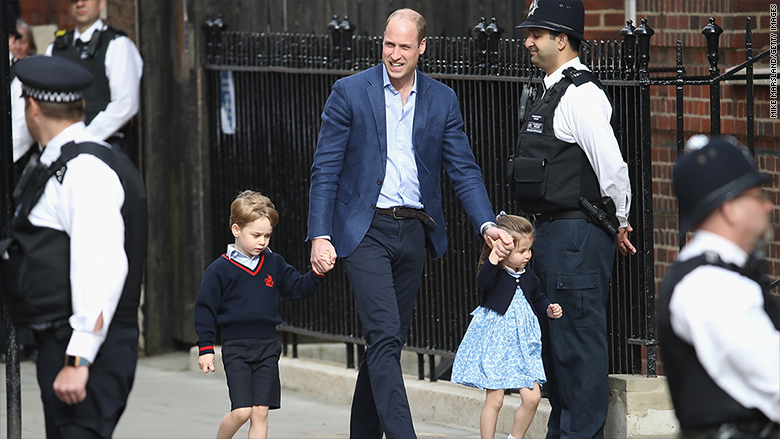
For the Duke and Duchess of Cambridge, having three kids won't break the bank. For many other Millennial Brits, a family of that size just isn't an option.
Catherine, Duchess of Cambridge, gave birth to the couple's third child, a son, on Monday.
Raising one child in the United Kingdom to the age of 21 costs about £232,000 ($323,000), according to the Centre for Economics and Business Research (CEBR). In London, that rises to £254,000 ($354,000).
That means a London-based family with three children is looking at a total cost of more than $1 million, and that doesn't include private schools or university fees, which together can easily add another $200,000 per child.
To put this in perspective, the median UK income for a working household is just £29,300 ($40,100) per year, after income tax deductions, according to the UK Office for National Statistics.

Earning power isn't a problem for Kate and Prince William. They receive millions from Prince Charles to cover the cost of their official duties, own a country mansion, and enjoy a London residence — Kensington Palace — rent free.
The average Londoner, by contrast, will have to pay £472,000 ($658,000) to buy a home.
Little wonder then that British women are having far fewer children than past generations.
Here are a few reasons why:
Higher costs are putting couples off
National statistics show the average British woman has just 1.8 children each. In the 1960s, during the so-called Baby Boom, it was close to three children each.
Rising female education has been associated with lower birth rates. But cold, hard financial considerations seem to have played into many couples' decisions too.
CEBR research from 2014 found that 21% of parents said they were delaying having another child due to the rising cost of raising a family.
Pay squeeze and expensive housing
Millennial parents — those born in the 1980s and 1990s — are facing particular challenges, including slower wage growth, which could influence their decisions on having children.
Research from the Resolution Foundation shows previous British generations earned significantly more than their predecessors after calculating for inflation. But this trend doesn't hold for Millennials, who are earning less than Generation X — those born between 1966 and 1980 — and have seen their wages squeezed following the Great Recession.
"This stalling of generational pay progress is unprecedented," Resolution Foundation researchers said in a recent report.
The rising cost of housing is adding to the pressure.
"Millennials today are spending more of their income on housing than previous generations did at the same age, but critically get less for their money when it comes to security and quality of life," the report noted.

Less state support for large families
Recent changes in government policy also seem to be discouraging people from having three or more children, according to Donald Hirsch, director of the Centre for Research in Social Policy at Loughborough University.
Since 2017, government credits to poorer families with three or more children have been trimmed.
"This rule can be interpreted as saying that society disapproves of you having more than two children if you are poor," said Hirsch.
Related: The royal baby will make the world's greatest brand even stronger
People may think the cost of raising a second or third child is cheaper than the first, but that's not necessarily the case.
"There are some economies of scale, but there are lots of extra costs with having a third child," said Hirsch. "You may have to buy a new car ... You may need a larger home."
